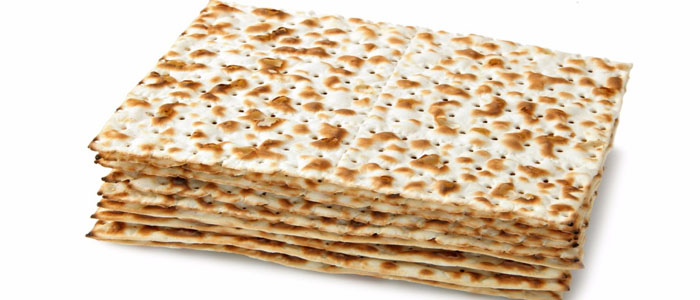
Introduction
Passover also serves as a memorial of God’s miraculous redemption of the children of Israel out of Egyptian bondage during Moses’ day (Exodus 12: 14, 13: 3 - 8, Deuteronomy 16: 1 - 3).
Passover also serves as a memorial of God’s miraculous redemption of the children of Israel out of Egyptian bondage during Moses’ day (Exodus 12: 14, 13: 3 - 8, Deuteronomy 16: 1 - 3).
The Biblical New Year (1st of Nisan, 5778) just dawned in valour merely a week ago (17th March 2018) and the newness of life is evident everywhere you look. Here in Kenya, the long rains are here and a lush green carpet adorns the land. Indeed, God is good as life sprouts and springs from the ground., the eggs are hatching into nestlings, fawns, foals, calves, puppies, chicks and immureable other life forms attests to the fact that indeed the New Year is here!
Up next on this divine scheme of things is the Pesach (or Passover) and Feast of Unleavened Bread. As is the case with Messianic and other Jewish congregations world - wide, here in Kenya preparations are in full swing for this most important of holy festivals. From Moi’s Bridge (in Western Kenya) to Lamu (on the Eastern most part of Kenya’s Indian Ocean seaboard), from Mkodhima, Dagani and Murang’a (in the Mount Kenya region) to Mombasa (that most ancient of Coastal cities) the air is astir with unalloyed excitement! The Lord’s Supper, the annual renewal of the Covenant in Yahshua’s blood is here. As for me, as we speak, I’ve just covered almost 400Kms in the first leg of a journey that will take me to Malawi in central Africa to celebrate with the brethren there.
So what’s all this fuss about the Passover? What is its significance? Well, first and foremost its number two on the list of the seven divinely ordained festivals in Leviticus 23. These holy convocations feature prominently in the Bible Calendar presaging various important events in God’s grand plan of Salvation and going into the Millennial kingdom of Yahshua: “For I say unto you, I will not drink of the fruit of the vine, until the Kingdom of God shall come” (Luke 22: 18). In Colossians 2: 16 - 17 we learn that these holy days fore-shadow the shape of things when Yahshua will again walk this earth. Further scriptural evidence for this profound truth include Isaiah 66: 22 - 23, Zechariah 14: 9 - 17, Isaiah 33: 20 etc).
Passover also serves as a memorial of God’s miraculous redemption of the children of Israel out of Egyptian bondage during Moses’ day (Exodus 12: 14, 13: 3 - 8, Deuteronomy 16: 1 - 3). On this day, as the angel of destruction visited death on all Egyptian first born, the Israelites had been priorly instructed to kill a male year old lamb with no blemish and sprinkle its blood on their door posts and lintels. This was the divinely ordained sign to the angel so that he would not kill Israelite firstborn along with those of Mizraim. (Exodus 12: 1 - 13). So on that dreadful night, as Egypt mourned their first born, the angel “Passed - over” Israelite households.
It is also true that this ancient event presaged the ultimate sacrifice of the Son of God for the Salvation of man (John 3: 16). The ancient Passover Lamb was a symbol of the ultimate Lamb of God who takes away the sin of the whole world (John 1: 29, 36). So as the ancient Lamb had to be without defect, so was Yahshua perfect. Similarly, as the lamb of old did not have any of his bones broken, so Yahshua’s bones were not broken at Golgotha (John 19: 33). The Passover meal is therefore symbolic of the new Covenant in Yahshua’s blood (Luke 22: 19 - 20). This is the Covenant foretold through the Prophet Jeremiah (Jeremiah 31: 31 - 33).
The Passover meal also speaks to the unity of believers - the Church as the body of Messiah. For “we, being many, eat one bread and are one body, for we are all partakers of that one bread (1 Corinthians 10: 17). This one body, ought to maintain doctrinal purity (and therefore the unleavened bread, since leaven stands for man - made teachings or traditions of men).
That is why Yahshua cautioned his Disciples against the yeast of the Pharisees (Mathew 16: 6). In Mathew 16: 12, he plainly explains to them that the “yeast” he referred to were the teachings of the Pharisees. Not only was it a warning against substituting human traditions for the word of God, it also was a warning against hypocrisy - a charge also laid against the self - same Pharisees (Mathew 23: 1 - 30). In other words the body of believers ought to preach water and drink water. In Yahshua’s own words, the true Israelite has absolutely no guile (John 1: 47). So as we keep the festival, lets all reflect on these wonderful truths and spiritual gems and riches that are so ingeniously embedded in Elohim’s sacred festivals. Shalom Pesach and Happy New Year!!
By Ken Chang'andu